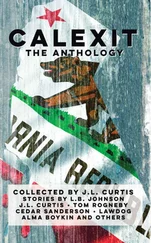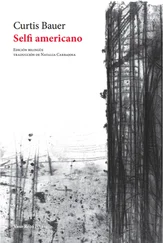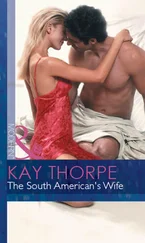Curtis Sittenfeld - American Wife
Здесь есть возможность читать онлайн «Curtis Sittenfeld - American Wife» весь текст электронной книги совершенно бесплатно (целиком полную версию без сокращений). В некоторых случаях можно слушать аудио, скачать через торрент в формате fb2 и присутствует краткое содержание. Жанр: Старинная литература, на английском языке. Описание произведения, (предисловие) а так же отзывы посетителей доступны на портале библиотеки ЛибКат.
- Название:American Wife
- Автор:
- Жанр:
- Год:неизвестен
- ISBN:нет данных
- Рейтинг книги:4 / 5. Голосов: 1
-
Избранное:Добавить в избранное
- Отзывы:
-
Ваша оценка:
- 80
- 1
- 2
- 3
- 4
- 5
American Wife: краткое содержание, описание и аннотация
Предлагаем к чтению аннотацию, описание, краткое содержание или предисловие (зависит от того, что написал сам автор книги «American Wife»). Если вы не нашли необходимую информацию о книге — напишите в комментариях, мы постараемся отыскать её.
American Wife — читать онлайн бесплатно полную книгу (весь текст) целиком
Ниже представлен текст книги, разбитый по страницам. Система сохранения места последней прочитанной страницы, позволяет с удобством читать онлайн бесплатно книгу «American Wife», без необходимости каждый раз заново искать на чём Вы остановились. Поставьте закладку, и сможете в любой момент перейти на страницу, на которой закончили чтение.
Интервал:
Закладка:
You deserve better than a mere surrogate; you, too, are entitled to the real thing and not just scraps from my husband.
Needless to say, I have bitten my tongue and hoped she leads a private life about which we know nothing.)
Debbie had worked as a publicist for the Brewers—she was as passionate a baseball fan as Charlie, herself a former softball star at UW, and she also, with Charlie’s encouragement, had joined Heavenly Rose Church and been born again in 1990 —and when Charlie had left the Brewers, she’d gone with him. In those early days of Charlie’s political climb, I was sometimes surprised by how willingly and even ardently people followed him. Because he did not, as I had learned over time, inspire much confidence among his own parents, brothers, and sisters-in-law, it was hard for me not to see him as a bit of an underdog. But particularly during and after his stint with the Brewers, others saw an idealized version, as if Charlie were the star of a movie about his own life: a handsome, funny, good-natured guy who’d graduated from prestigious schools, had a prominent and successful career (was he the son of privilege? Sure, but with baseball, he’d gone in a different direction, and within a minute of meeting him, you could tell how unaffected he was—he preferred burger joints to fancy restaurants, he’d joke around with your kid, he was impishly self-effacing). He was confident and fit and religious, with a marriage that bore no trace of scandal, and a close relationship to his only child. In this narrative, he was the kind of guy whom men wanted to be friends with and women wished their husbands were more like. While my proximity to Charlie is undoubtedly part of the reason for my own less worshipful perspective, I can say sincerely that the single most astonishing fact of political life to me has been the gullibility of the American people. Even in our cynical age, the percentage of the population who is told something and therefore believes it to be true—it’s staggering. In a way, it’s also touching; it makes me feel protective. (To be a person who sees a political ad on television and takes the statements in it as fact, how can you exist in this world? How is it you’re not robbed daily by charlatans who knock at your door?)
I had assumed everyone and particularly political insiders harbored the same private skepticism that I did, especially about the discrepancy between an individual’s words and actions, and that decorum made all of us conceal this skepticism; I was evidently wrong. I love Charlie as much as—or, I should hope, more than—someone like Debbie, but I love him differently, with a sharper understanding of his faults. If I believe he ran for president because it was a way of allaying his fear of the dark, then I am able, on my most generous days, to see this motive as endearing. Debbie, on the other hand, believes Charlie ran for president because God summoned him, and she sees him as heroic.
As I sat in the van next to Charlie, heading toward Little Chute, what came on the radio after “Friends in Low Places” was “Achy Breaky Heart,” a song that had become a joke during that campaign because no one would admit to liking it, yet we all knew all the words, and we ended up hearing it on the radio everywhere we went, particularly in the staticky backwaters. Hank called to Kenny in the front seat to turn up the volume, and Hank and Debbie sang jubilantly, their Garth Brooks argument suspended. Next to me, quietly and seriously, Charlie said, “You think I’m up to the task of being governor, don’t you?”
“I think you’ll be wonderful.” I wasn’t lying. When Charlie had decided to run over a year earlier, he’d known little about our state that hadn’t been filtered through family lore or his own experience as a congressional candidate in ’78, but he had diligently immersed himself in the history and politics of Wisconsin. Hank had arranged for experts in economics and education and health care to come in and brief him, usually confidentially, and Charlie had worked on memorizing facts and statistics until he could recite them fluently.
Hank tapped my shoulder. “Why aren’t you two singing? ‘You can tell your ma I moved to Arkansas / You can tell your dog to bite my leg . . .’ ”
I flashed him a smile. “Looks like you’ve got this verse covered, Hank.” When he had leaned back again, I said softly to Charlie, “I’m sure there’ll be plenty of challenges, but if you stay focused on what you’re trying to achieve, you’ll be great.”
“You know what I realized today?” Charlie said. “Shaking hands with people at lunch, I thought, I’ll never make another friend. Assuming I’m elected, I mean—from here on out, it’ll only be people wanting favors and access.”
I couldn’t disagree. “You’re lucky, though, that you already have so many friends,” I said. “We’re both lucky.”
“But that’s the thing.” He was very reflective in this moment, especially in contrast to Hank and Debbie hamming it up behind us. “After Howard asked me about the engineering contracts, I’m not faulting him, but I better always be ready for that from now on. I shouldn’t let down my guard and assume any get-together is just fun and games when even people we know—heck, Arthur or John or Ed—a lot of them will have an agenda. When I think of it this way, I nagged Ed about the baseball stadium.”
“You should talk to him about this, or your dad. I bet they’d have good insights.” Ed was still a congressman, and though there had been discussion of his running for Senate in the ’92 election, he hadn’t, and I wasn’t sure why.
“You know the one person who’ll never use me?” Charlie pointed at me.
“Sweetheart, I’m sure I’m not the only one. It might be a transition for some of our friends, but I wouldn’t underestimate them.”
“People get funny, though. I’d forgotten about this until earlier today, but when my dad was governor, there was an old friend of the family who ran afoul of the law, I think for embezzling, and he wanted Dad to intervene. When Dad refused, this guy’s kids—fellows I knew well from the country club—they quit speaking to me. The man didn’t end up going to prison, either, so I don’t know what the family had to be so sour about.”
From the seat behind us, Hank leaned forward again—the song was nearing the end, with the chorus repeating several times—and called, “Last chance. Chuckles, you’re lucky you chose politics, because you’d never have made it in a traveling minstrel show.” (Chuckles was Hank’s nickname for Charlie, payback for Shit Storm. Of course, while Charlie is now Mr. President, the Shit Storm moniker has endured.)
Agreeably, Charlie joined in: “ ‘Don’t tell my heart, my achy breaky heart . . . ’ ”
I took his hand, lacing my fingers through his, and I leaned in so my mouth was by his ear. “I love you very much,” I whispered.
IN THE TOWN
car, Jessica is on the phone with Hank. “She’d prefer not to,” Jessica keeps saying in a level tone—she has impeccable manners—and I can hear fragments of Hank’s voice, wheedling but insistent; he wants to talk to me directly. “No, she wasn’t,” Jessica says. “She doesn’t think Gladys Wycomb is concerned about that. No. No. All right. I’ll call you from the plane.” She presses the red “end” button on her cell phone, folds it shut, and immediately reaches for her Black-Berry and starts typing with her thumbs.
We are two miles from Midway Airport, Jessica and Cal and I in this car, which is driven by a local agent. I say, “I’d like to make a stop in Wisconsin before we return to Washington.”
Jessica raises her eyebrows. “Your mother?”
My mother outlasted her second husband, too (Lars, who was perhaps the only person in either Charlie’s or my family to take unequivocal delight in Charlie’s political rise, died of acute renal failure in 1996), and my mother now resides in an assisted-living facility in an area outside Riley that was a pasture when I was growing up. She has Alzheimer’s, but the blessing is that she remains both good-natured and seemingly happy; given how many of the people who have neurodegenerative diseases are depressed or violent, I am grateful. However, even as we’re using my mother as the pretext for my traveling today, she isn’t the one I wish to see.
Читать дальшеИнтервал:
Закладка:
Похожие книги на «American Wife»
Представляем Вашему вниманию похожие книги на «American Wife» списком для выбора. Мы отобрали схожую по названию и смыслу литературу в надежде предоставить читателям больше вариантов отыскать новые, интересные, ещё непрочитанные произведения.
Обсуждение, отзывы о книге «American Wife» и просто собственные мнения читателей. Оставьте ваши комментарии, напишите, что Вы думаете о произведении, его смысле или главных героях. Укажите что конкретно понравилось, а что нет, и почему Вы так считаете.












